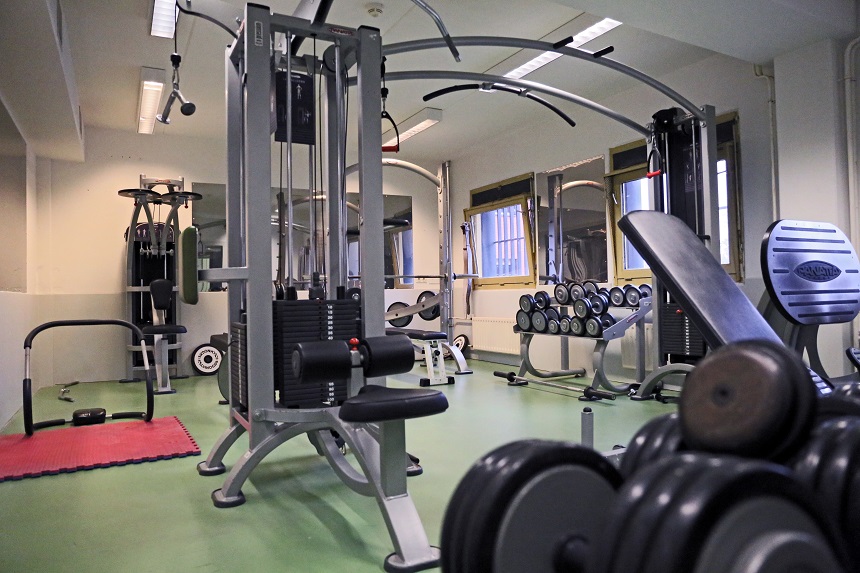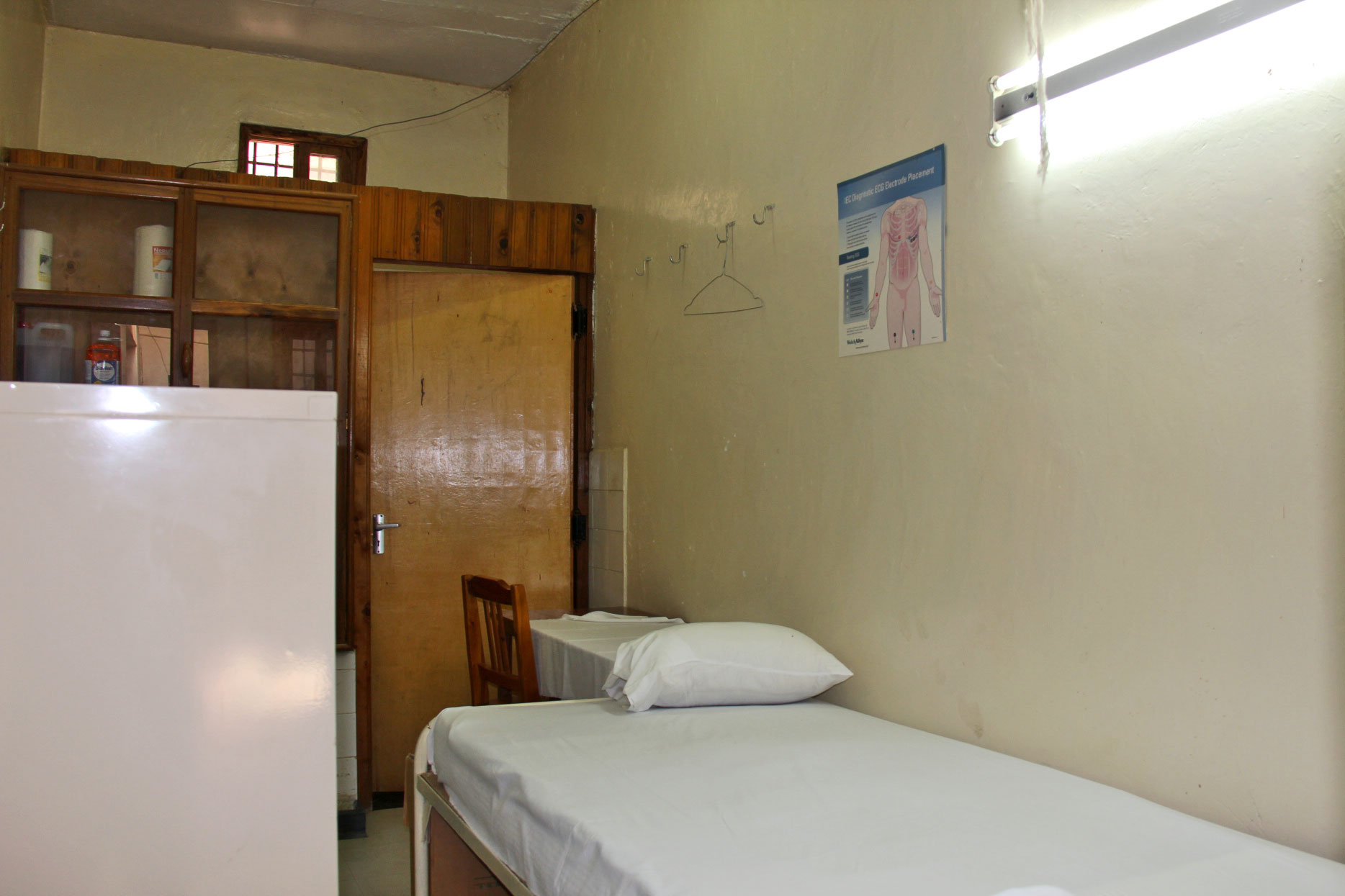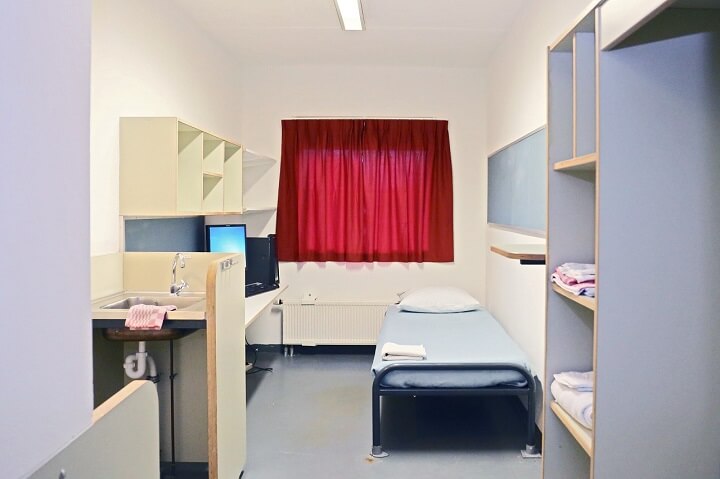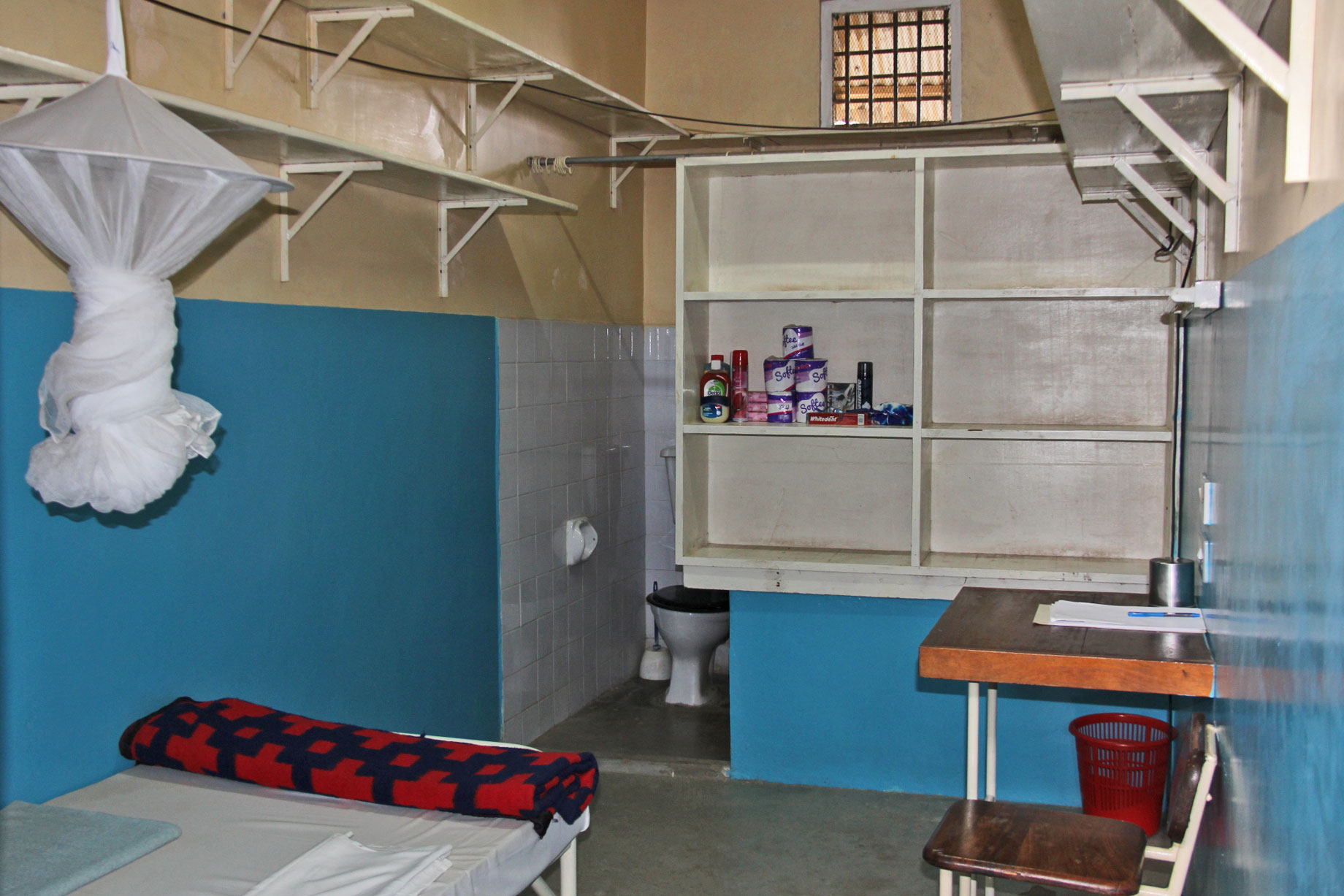Detention at the IRMCT
A cell at the United Nations Detention Unit in The Hague.
The Mechanism maintains two detention facilities at its respective branches, which house detainees subject to its jurisdiction. Both are operated in line with international standards for treatment of detainees.
The two facilities, which formerly served the detention needs of the International Criminal Tribunal for Rwanda (ICTR) and the International Criminal Tribunal for the former Yugoslavia (ICTY), are known as the United Nations Detention Facility (UNDF) at the Arusha branch and the United Nations Detention Unit (UNDU) at the Hague branch.
What are the UNDF and UNDU?
Both the UNDF and the UNDU are remand facilities, as opposed to penitentiaries. This means that they apply the presumption of innocence to all detained persons unless and until proven guilty in a court of law. Additionally, respect for the dignity of the individual is an overarching principle. Both facilities provide a safe and secure detention environment.
Due to their status as remand facilities, and in accordance with Article 40 of the Host State Agreements for both branches and Article 25 of the Mechanism Statute, detainees subject to a final conviction are transferred to an Enforcement State to serve their sentences. Mechanism detainees who are acquitted are released from custody.
Read More: About Enforcement of Sentences
Operation of the Detention Facilities
- The overriding principles of humanity and respect for human dignity;
- The extensive experience of the ICTR Detention Facility and the ICTY Detention Unit; and,
- International legal instruments pertaining to detention, in particular The United Nations Standard Minimum Rules for the Treatment of Prisoners (also known as the “SMR” or the Nelson Mandela Rules).
The Mechanism also consulted with the International Committee of the Red Cross in the development of the Rules of Detention.
Each facility seeks to achieve the highest international standards for treatment of detainees within the context of its local community. Accordingly, the physical and emotional welfare of all Mechanism detainees is managed through an understanding of their individual needs, while all persons in detention receive impartial treatment. No one is segregated on the basis of their race, ethnicity, nationality, religion, or class.
Welfare of Detainees
 In addition to providing for the physical and emotional welfare of detainees during pre-trial, trial, and appeal, both the UNDF and the UNDU have facilities to run comprehensive programmes of remand, providing a full daily activity schedule. This includes access to facilities suitable for the preparation of one’s defence, as well as regular opportunities for activities, such as:
In addition to providing for the physical and emotional welfare of detainees during pre-trial, trial, and appeal, both the UNDF and the UNDU have facilities to run comprehensive programmes of remand, providing a full daily activity schedule. This includes access to facilities suitable for the preparation of one’s defence, as well as regular opportunities for activities, such as:
- Fresh air;
- Exercise/sport;
- Educational classes; and
- Spiritual guidance.
Additionally, detainees may communicate by letter and telephone with their families and friends, and receive in-person visits from family, friends, and legal and diplomatic representatives. Such communications are administered in line with regulations intended to safeguard the security and good order of the UNDF and the UNDU, respectively, and to protect the integrity of the judicial proceedings.
Read more: The Mechanism’s Regulations on the Supervision of Visits and Communication with Detainees
Healthcare
 Further, both the UNDF and the UNDU benefit from well-equipped medical facilities, staffed with a Medical Officer and assistants, who are responsible for providing detainees with daily healthcare and emergency services commensurate with what is available in the local community. This is especially important as most detainees are of an advanced age, requiring medical attention unique to their individual circumstances.
Further, both the UNDF and the UNDU benefit from well-equipped medical facilities, staffed with a Medical Officer and assistants, who are responsible for providing detainees with daily healthcare and emergency services commensurate with what is available in the local community. This is especially important as most detainees are of an advanced age, requiring medical attention unique to their individual circumstances.
Finally, all detainees are provided with food which meets dietary standards and is prepared in accordance with modern hygiene requirements, subject to the supervision of the responsible Medical Officer. Such food takes into account the age, health, religious, and cultural requirements of detainees, as much as is practicable.
International Compliance
Both detention facilities are inspected regularly by the International Committee for the Red Cross, which ensures that the Rules of Detention are properly applied and that both facilities are operating in accordance with international standards.
Want to Read More?
- Regulations on the Complaints Procedure for Detainees
- Regulations on the Disciplinary Procedure for Detainees

